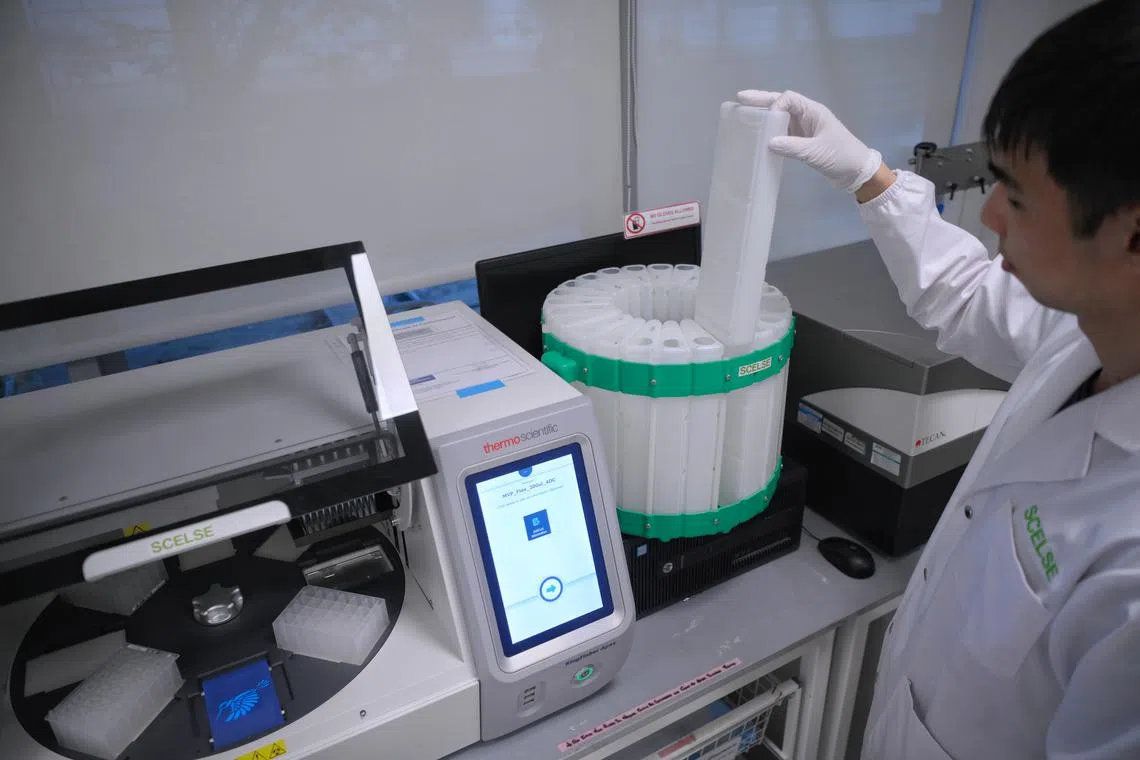Wastewater surveillance can quickly and accurately detect disease spread: Study
Sign up now: Get ST's newsletters delivered to your inbox

The study analysed Covid-19 variants found in wastewater collected from two treatment plants between September 2021 and May 2022.
ST PHOTO: MARK CHEONG
SINGAPORE - Wastewater surveillance made it possible to detect the spread of the Omicron variant of Covid-19 in the community within two days, according to a new study by the Singapore Centre for Environmental Life Sciences Engineering (SCELSE) in Nanyang Technological University (NTU) and National University of Singapore.
This validates wastewater surveillance as a fast and accurate barometer for disease in a population, said Dr Desmond Chua, research fellow at SCELSE and lead author of the study, adding that it should be used as a tool to prevent future pandemics.
Dr Chua said: “Although wastewater surveillance can only pick up asymptomatic and symptomatic cases before clinical confirmation, it can promote the quick ring-fencing of specific affected communities.”
He added: “This can prevent a minor outbreak from devolving into a fully fledged pandemic.”
The study will be published in the Science of The Total Environment on June 1. It analysed Covid-19 variants found in wastewater collected from two treatment plants between September 2021 and May 2022.
The plants serviced around 50 per cent of Singapore’s population as the country was transitioning to living with Covid-19 and lifting mandatory testing for international arrivals.
The team of researchers from NTU, SCELSE and Singapore MIT Alliance for Research and Technology (Smart) manufactured several genetic markers – known as assays – to test for the presence of different Covid-19 variants.
They also manufactured an assay to detect general levels of the Omicron variant, and two to detect specifically the Ba.1 and Ba.2 Omicron subvariants in wastewater.
The scientists were thus able to get an overview of the extent of Covid-19 transmission in the community at the time, and the sub-variant composition in those infected.
In this way, they discovered that the Ba.1 and Ba.2 sub-variants
This would validate the government’s decision to relax its on-arrival testing policy on Jan 7, 2021, after observing that the Omicron variant was more infectious but less deadly than other Covid-19 strains, and posed less of a threat.
Associate Professor Janelle Thompson at the Asian School of the Environment in NTU, the lead principal investigator of the study, said that analysing wastewater provided evidence that the country’s on-arrival testing policy successfully kept Omicron out of the community until Singapore was ready.
The decision to lift on-arrival testing for Covid-19 was made when more than 80 per cent of the population was vaccinated, and more than 40 per cent of the population had taken their booster shots.
Prof Thompson said: “At the end of the day, the results really line up with the timeline of the policies… Our interest in wastewater surveillance is in using it to inform public policy decisions and to evaluate their efficacy.”


